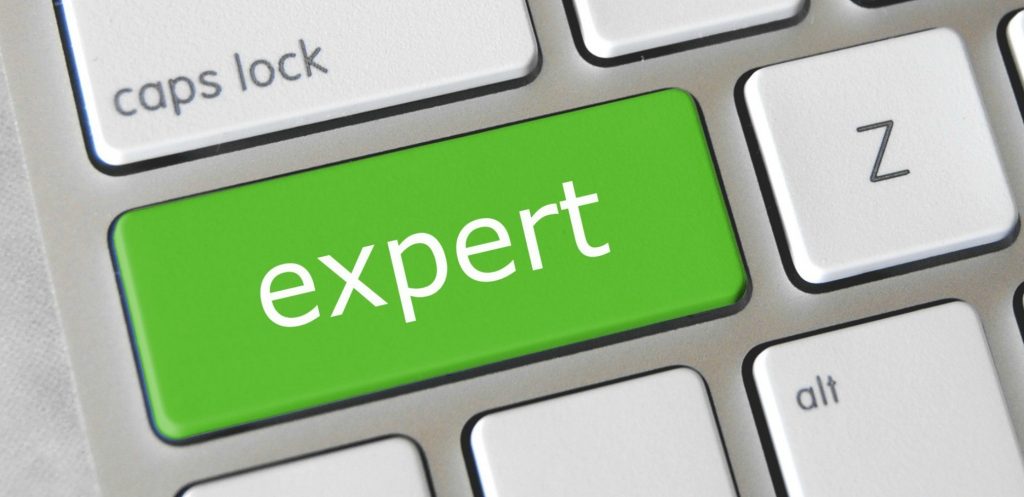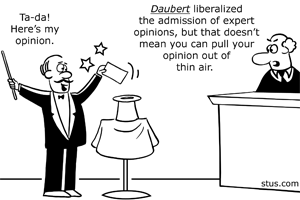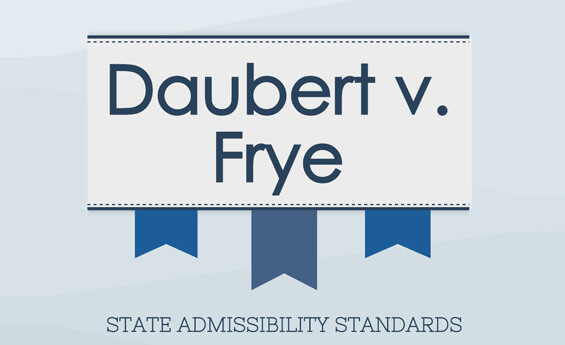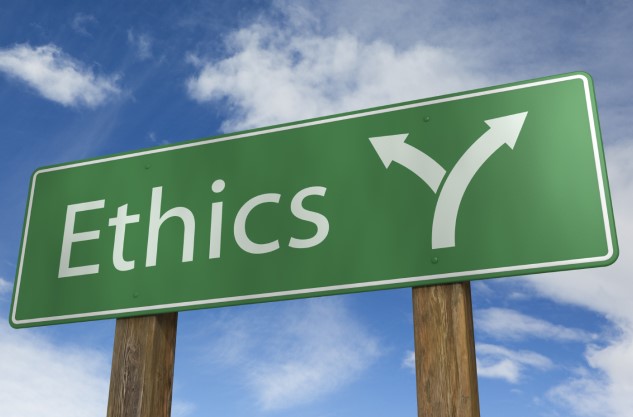Dual relationships inevitably involve conflicts of interest. Just as an attorney cannot represent the business interests of a client in one matter, and also represent that client’s spouse in a divorce action, mental health professionals are prohibited from engaging in similar conflicts of interest. At PsychLaw.net, we consider dual relationships problematic and unethical. This is clearly articulated in the various ethical codes. Take for example Standard 1.06 (c) of the Code of Ethics for social workers which states: Continue reading “Dual Relationships and Ethical Obligations”
Month: May 2018

The “Wonderfully Stupid” Expert Admissibility Tests
The Emphasis at PsychLaw.net is that to move the law of expert testimony forward, the cross examiner must be cognizant of these decent tests, but must be aware of the terrible tests for expert qualification as well. Faced with many draconian decisions, attorneys tend to develop a compensating sense of “gallows humor”. With our respect to all those cross examiners who have to endure the sometimes ridiculous and heartbreaking decisions of our trial and appellate courts, we have begun to collect what we refer to as the “wonderfully stupid” expert admissibility tests. Continue reading “The “Wonderfully Stupid” Expert Admissibility Tests”

Who Qualifies as An Expert?
Federal Rule of Evidence 702 states: “If scientific, technical, or other specialized knowledge will assist the trier of fact to understand the evidence or to determine a fact in issue, a witness qualified as an expert by knowledge, skill, experience, training, or education, may testify thereto in the form of an opinion or otherwise.”[1] At PsychLaw.net we remember that because it carries such an “aura of infallibility,” [2] scientific testimony can create difficult problems for our courts. Summarizing the literature, one respected commentator has written: “[t]here is virtual unanimity among courts and commentators that evidence perceived by jurors to be ‘scientific’ in nature will have particularly, persuasive effect.”[3] Continue reading “Who Qualifies as An Expert?”

DAUBERT HEARINGS
Federal Rule of Evidence 104(a) provides that preliminary questions concerning the qualification of a person to be a witness, or the admissibility of evidence, shall be determined by the court. Federal Rule of Evidence 104 (c) provides in part that hearings on preliminary matters may be conducted when the interests of justice require. FRE 104 (a) authorizes a court to hold an evidentiary hearing to make a preliminary determination that the expert is properly qualified, and that the expert’s underlying reasoning or methodology is scientifically valid and properly can be applied to the facts of the case.[1] In the exercise of its gatekeeping function, the Daubert Court held that a trial court must undertake a preliminary determination of whether the methodology of the expert’s proposed testimony is scientifically reliable. Continue reading “DAUBERT HEARINGS”

The Move Toward “Validity” and “Reliability” in the Courts
After seventy years of service, Frye v United States, 54 US App D C 46, 293 F 1013 (1923) and the “generally accepted in the scientific community” analysis for admissibility of scientific testimony, began to create some silly results. At PsychLaw.net we know that as recently as the early 1990’s, attorneys and “experts” too often succeeded in manipulating the “general acceptance” admissibility rules. As a result, all sorts of “science” began to find its way into the courts. Continue reading “The Move Toward “Validity” and “Reliability” in the Courts”

